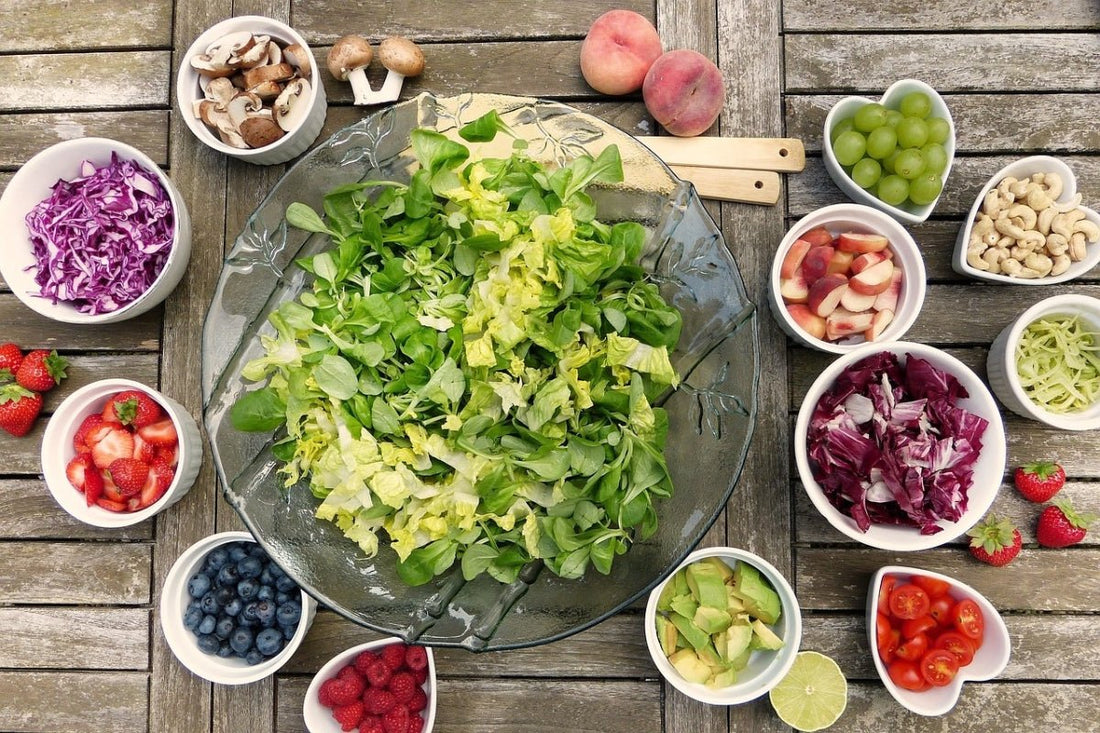
Exploring the Best Diets: Unveiling the Pros and Cons
Share
In today's health-conscious world, finding the best diet to achieve optimal well-being and weight management can be overwhelming. With a multitude of options available, it's essential to understand the pros and cons of each diet. In this article, we will explore some of the best diets and their potential benefits and drawbacks, empowering you to make informed choices about your dietary journey.
Mediterranean Diet:
The Mediterranean diet is renowned for its heart-healthy focus and abundance of wholesome foods. This eating pattern emphasises fruits, vegetables, fish, poultry, whole grains, legumes, dairy products, and olive oil. Processed foods, added sugar, and refined grains are limited. In fact, research shows that the Mediterranean diet may even be linked to a lower risk of heart disease and stroke
Pros:
- Promotes cardiovascular health and reduces the risk of heart disease and stroke.
- Stabilises blood sugar levels, potentially protecting against type 2 diabetes.
- Supports brain health and may help prevent cognitive decline.
Cons:
- Lack of specific guidelines may make it challenging for some to follow.
- Overeating is possible due to the inclusion of healthy fats and whole grains.
- Serving size ambiguity can lead to confusion.
Paleo Diet:
The Paleo diet seeks to emulate the dietary habits of our ancestors. It focuses on consuming unprocessed foods like fruits, vegetables, nuts, and meats while excluding processed foods, dairy, grains, and salt.
Pros:
- Low sugar intake and high consumption of fresh fruits and vegetables promote overall health.
- Improved sleep, focus, and weight loss reported by adherents.
- Potential reduction in the risk of chronic diseases associated with excess body weight.
One study found a mean weight loss of 3.52 kilograms plus a decreased waist circumference and BMI in those who followed a Paleolithic diet compared with those eating other commonly recommended diets.
Cons:
- Risk of nutrient deficiencies due to the exclusion of entire food groups.
- Difficulty in accurately replicating ancestral diets due to evolutionary changes.
- Potential loss of benefits from excluded foods, such as beans, which provide minerals, fibre, and plant-based protein.
- Limited fibre intake may impact gut health and increase the risk of certain conditions.
Keto Diet:
The Keto diet involves significantly reducing carbohydrate intake and increasing fat consumption to induce a state of ketosis, where the body utilises fat for energy.
Pros:
- Lowers blood sugar and insulin levels, benefiting individuals with certain health conditions.
- Originally designed to reduce seizures, showing positive effects for some.
- Potential for weight loss and reduced snacking.
Cons:
- High intake of saturated fat, which may increase the risk of heart disease.
- Limited variety of vegetables may result in nutrient deficiencies.
- Common side effects include constipation and bad breath.
- Difficulty meeting micronutrient needs due to the restriction of certain foods.
5:2 Diet (Intermittent Fasting):
The 5:2 diet involves alternating between regular calorie consumption and significantly reduced calorie intake for specific periods.
Pros:
- Simple to follow with fewer rules and restrictions.
- Studies suggest potential benefits, such as weight loss and improved insulin sensitivity.
Cons:
- Not suitable for individuals prone to low blood sugar or those who experience dizziness without regular meals.
- Requires self-discipline to avoid overindulgence on non-diet days.
Juicing Diet:
The Juicing diet entails consuming only fresh fruit and vegetable juices for a limited period. Many studies have shown benefits of fasting including weight loss, reducing insulin levels. And it may help reduce insulin resistance, asthma, seasonal allergies, heart arrhythmias, menopausal hot flashes and more.
Pros:
- Rapid initial results can provide motivation to continue.
- Potential improvement in gut health and overall well-being.
- Convenient way to consume a variety of vitamins and minerals.
Cons:
- Short duration limits the body's adjustment period, leading to potential side effects like fainting and fatigue.
- Proper fluid intake and juice selection are crucial to mitigate challenges.
Determining the best diet is a personal journey influenced by various factors, including individual goals, health conditions, and lifestyle.
Adding a wheatgrass juice to your diet can help with weight loss. As a ‘whole’ food’ it is high on the satiety scale and keep you full for longer. Low in calories it can help with weight loss, to order yours visit our shop today.

